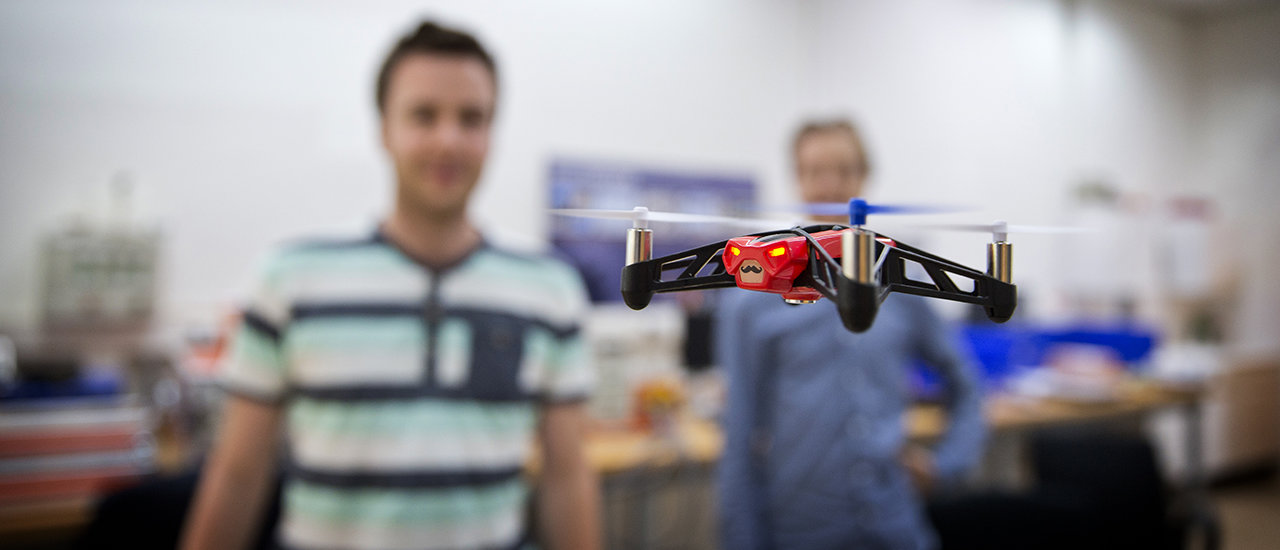30 July 2024
Astronomers clarify how organic macromolecules are formed
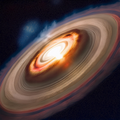
Planetary scientists have long believed that the organic macromolecules that make the Earth suitable for life come from chondrites. But until now, the question has been how these chondrites -aggregated pebbles mainly known as meteorites- acquired the macromolecules. An international team of researchers from, among others, the University of Bern and TU Delft has found an explanation for this using observation-based computer models.
25 July 2024
IAWA-scholarship 2024 for Space student Tanya Spee
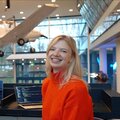
Each year The International Aviation Women's Association (IAWA) awards a scholarship to a female student at the Faculty of Aerospace Engineering. This year, the scholarship of 5,000 USD goes to Master's student Tanya Spee.
19 July 2024
Fourteen promising young Delft researchers receive Veni grant
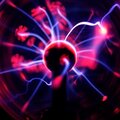
The Dutch Research Council (NWO) has awarded thirteen young TU Delft researchers from the Science (ENW) and Applied and Engineering Sciences (TTW) domains, a Veni grant of up to 320,000 euro.
17 July 2024
Ant insights lead to robot navigation breakthrough
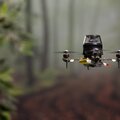
Have you ever wondered how insects are able to go so far beyond their home and still find their way? The answer to this question is not only relevant to biology but also to making the AI for tiny, autonomous robots. TU Delft drone-researchers felt inspired by biological findings on how ants visually recognize their environment and combine it with counting their steps in order to get safely back home.
08 July 2024
Can quantum computers solve an old riddle in composites design?
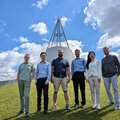
A team of researchers at TU Delft are the first in the world to apply quantum computing to solve an old riddle in the design of fibre-reinforced composite materials: how to determine the optimal sequence of angles at which the material’s layers are composed and stacked. This layering determines the mechanical properties of the material, essential for the application of composites for lightweight aircraft, wind turbine blades, cars or even batteries, etc. The QAIMS team have now gone through to the final rounds of the Airbus-BMW Quantum Computing Challenge where they will pitch their approach to ‘push the boundaries of quantum tech for mobility.’
04 July 2024
Revolutionising Water Level Monitoring: TU Delft's Alticube+ Selected by ESA
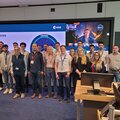
Als het waterniveau ergens op aarde stijgt -of daalt- willen we dat graag snel weten, zodat niemand gevaar loopt. Daarvoor is het nodig om het wereldwijde watersysteem goed te begrijpen en het waterniveau veelvuldig en op vele plaatsen te kunnen meten. Dr. Jian Guo en zijn team van TU Delft, samen met industriële partners COMET Ingeniería en ISISPACE, hebben daarom een nieuw concept genaamd Alticube+ bedacht. Dit voorstel is recent uit meer dan 70 voorstellen door ESA geselecteerd om samen met een team van ESA experts verder te gaan ontwikkelen.
28 June 2024
TU Delft student team designs a self-supporting lunar village
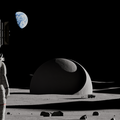
Dream Team ‘Space Oasis Delft’ has designed a lunar village for 150+ residents. The dwellings have elements of biomimicry, contain a self-sustaining biosphere and simulate a day-night cycle as well as seasons. Smart design choices safeguard not only the occupants' safety but also their mental well-being.
27 June 2024
Santiago Valencia Ibáñez recognized for pioneering aerospace design strategies
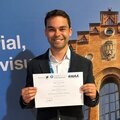
Santiago Valencia Ibáñez has been awarded first place at the 20th Pegasus-Europe AIAA student conference 2024 for his Master’s thesis on system architecture optimization in aerospace engineering. His work aims to prevent the premature dismissal of product architectures that could lead to the best-performing designs, crucial for next-generation, sustainable aircraft. The results of Ibáñez's thesis make it easier to identify the most promising and feasible designs.
25 June 2024
ESA press release: drone racing prepares neural-network AI for space
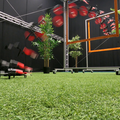
Drones are being raced against the clock at Delft University of Technology’s ‘Cyber Zoo’ to test the performance of neural-network-based AI control systems planned for next-generation space missions. The research – undertaken by ESA’s Advanced Concepts Team* together with the Micro Air Vehicle Laboratory, MAVLab, of TU Delft – was published in the latest issue of Science Robotics.
21 June 2024
TU Delft presents faster and safer suit for kiter Annelous Lammerts
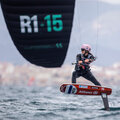
For the first time, kitesurfing is on the Olympic Games programme, with the Dutch Annelous Lammerts as one of the top participants. Using the Formula Kite, a hydrofoil under the kiteboard, Lammerts can reach speeds of over 70 km/h. This speed involves increased risks and aerodynamic challenges. Therefore TU Delft, in collaboration with TeamNL and textile innovation start-up WEEV Textiles, developed an advanced aerodynamic and cut-resistant suit.
